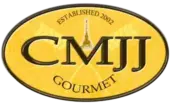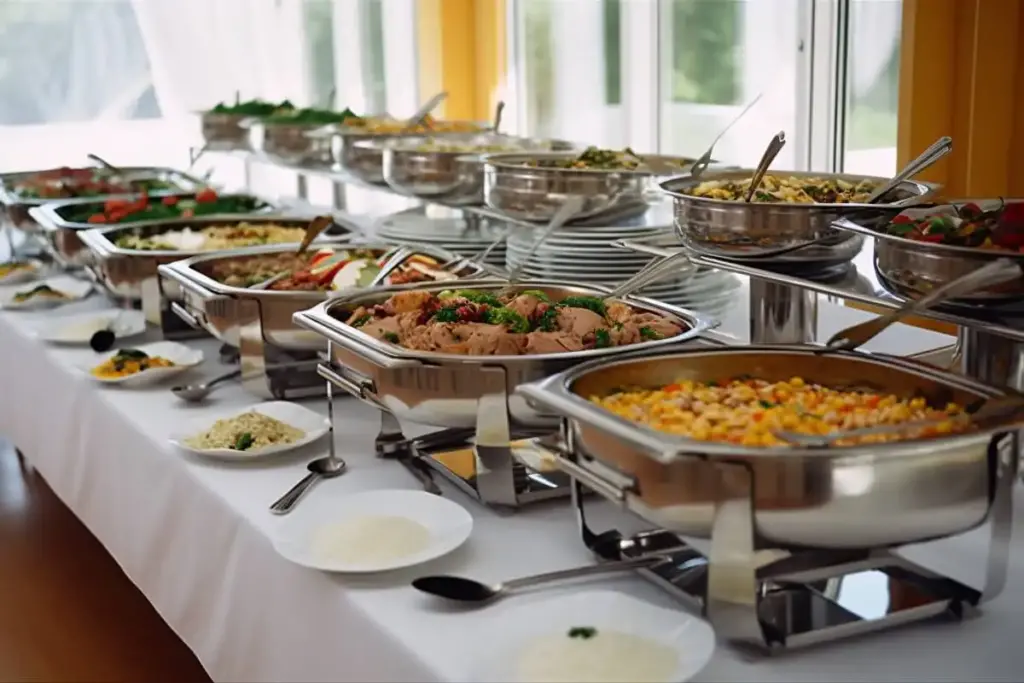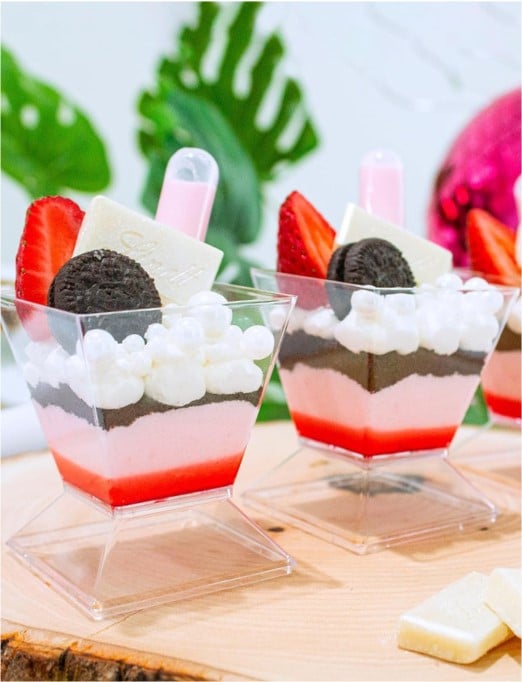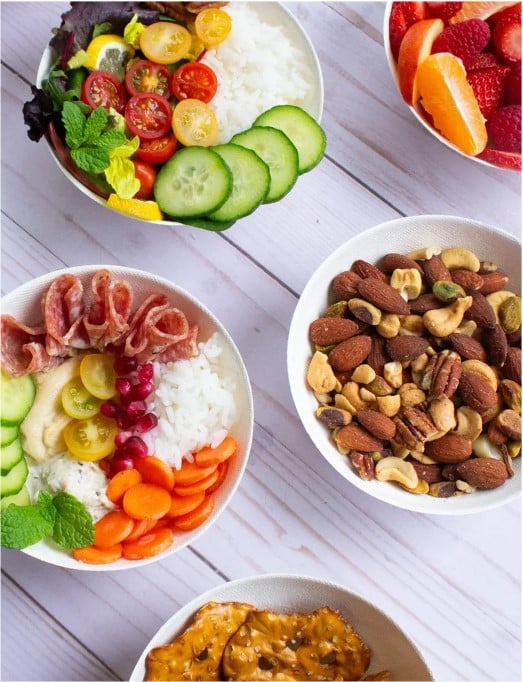A caterer is much like the behind-the-scenes maestro at any event, dedicated to providing food and beverages for guests at the event.
But they don’t just stop at the food and drinks. No, no, no! They’re also there to help set the mood and complement the theme of the event with their creative and aesthetically pleasing food presentation.
Besides that, caterers are master organizers and excellent problem solvers. They’re like the stage directors of a Broadway show where the cast members are a mix of appetizers, main courses, desserts, and drinks.
Table of Contents
What Does a Caterer Do?
A caterer does whatever it takes to make sure an event goes off without a hitch. This includes:
Meal Planning
This involves everything from coordinating with clients about their food preferences and dietary requirements to planning the quantity of food needed based on the size and nature of the event.
Menu Development
Besides meal planning, it’s the work of a caterer to create a menu based on the client’s preferences, budget, and dietary restrictions of the guests. For a quick spark of inspiration, take a look at these unique catering menu ideas that add an extra zing to any event.
Food Preparation and Presentation
The actual cooking and presentation of the food are crucial parts of a caterer’s job. They need to ensure the food tastes good, is prepared safely, and is visually appealing.
This can involve managing a team of cooks or chefs and overseeing the entire food preparation process.
Beverage Service
A caterer may also provide beverage service, which could range from non-alcoholic drinks like water, coffee, and soft drinks, to managing a full bar service, including wine, beer, and cocktails.
This involves not only serving beverages but also potentially helping clients select appropriate wines and other drinks to complement their chosen menu.
Equipment Management
Beyond managing food, a caterer may also be responsible for managing the equipment used to prepare and serve their clients’ food and set the atmosphere for the event.
This could include a range of items from kitchen equipment, such as ovens and utensils, to dining room essentials, like plates, silverware, glassware, and linens.
In some cases, caterers might also provide tables, chairs, and décor items like centerpieces or drapery.
They ensure these items are available in the right quantities, properly set up according to the event’s theme, and thoroughly cleaned before and after use.
Food Delivery and Service
Once the food is prepared, the caterer is responsible for getting it to the event location in a safe and timely manner.
At the event, they ensure that the food is properly served, whether it’s a buffet, a sit-down dinner, or passed hors d’oeuvres.
This often involves hiring and managing waitstaff and other service personnel.
Vendor Relationships
Caterers depend on a network of suppliers to provide the quality food, equipment, and supplies they need for each event.
They might work closely with local farmers, wholesale food suppliers, rental companies, and sometimes even florists or event decorators.
Building and maintaining strong vendor relationships can help caterers ensure the reliability of their supplies, secure the best prices, and access high-quality, fresh, and specialty items that elevate their service.
Client Relationship and Customer Service
A caterer works closely with their clients, from the initial consultation and planning stages, through to the event itself and any follow-up afterward.
They need to understand the client’s vision and work hard to meet (and ideally exceed) their expectations. Good communication and customer service skills are crucial in this aspect of the role.
Adherence to Health and Safety Standards
Caterers are responsible for ensuring all food is stored, prepared, transported, and served in accordance with local health and safety regulations.
This can also involve managing allergen information and meeting specific dietary requirements.
Staff Training and Management
In larger catering businesses, the caterer often leads a team that may include chefs, servers, dishwashers, and sometimes event planners or salespeople.
The caterer is responsible for hiring competent staff, providing the necessary training to ensure a consistent level of service, and managing work schedules to ensure adequate staffing for each event.
They also need to foster a positive work environment that encourages teamwork and high performance.
Waste Management
After an event, caterers are also often responsible for cleaning up and managing waste, including food waste and recycling. This can involve washing dishes, disposing of garbage and recycling, and cleaning the venue.
Budget Management
A caterer must be able to provide excellent service while staying within the budget agreed upon with the client. This requires strong financial planning and negotiation skills.
Types of Caterers
There are several types of caterers, each specializing in different services, each having a different level of experience and expertise.
The following are some of the most common types of caterers:
- Full-Service Caterers: Manage every detail from menu planning to clean-up, ideal for large, formal events.
- Corporate Caterers: Specialize in business functions, emphasizing efficiency and professionalism.
- Mobile Caterers: Operate from food trucks or carts, serving quick, tasty meals at casual gatherings or public spaces.
- Wedding Caterers: Focus on creating unforgettable culinary experiences for matrimonial ceremonies.
- Private Caterers: Offer personalized services, often cooking in clients’ homes for intimate gatherings.
Wrap Up
In essence, caterers are the heart and soul of any event. With their culinary expertise, creativity, and organizational skills, they create experiences that make celebrations truly special. They’re not just about the food, they are about crafting unforgettable moments.



